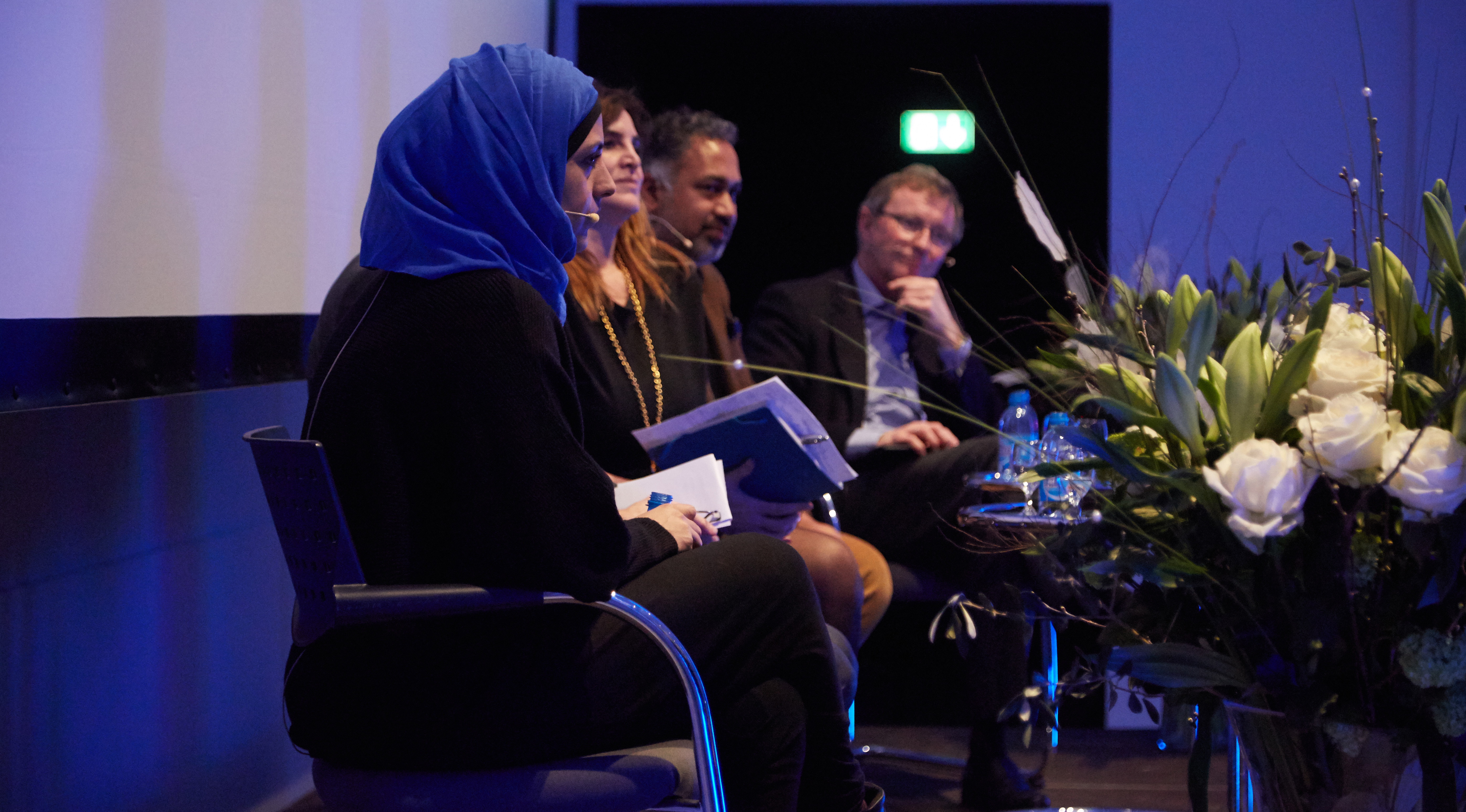Basel Peace Forum launched to rethink peace
Despite many international efforts, setbacks have called earlier successes of peacebuilding into question. The Basel Peace Forum aimed to address this problem and to rethink peace. The first edition took place on January 15 and 16 in Basel. About 120 decision-makers from business, diplomacy, academia and civil society met to reflect on previous endeavors and inspire new ideas for peace.
The program included two panel discussions with leading personalities including the Syrian architect and author of the book “The Battle for Home”, Marwa Al-Sabouni, the former Finish Minister for International Development and current president of the European Institute of Peace, Pekka Haavisto, and the CEO of the IKEA Foundation, Per Heggenes. Three workshops then followed to explore linkages between peace on the one hand, and health, artificial intelligence and risk analysis on the other.
The discussions revealed that it is crucial to break the silos between the different sectors in order to establish new partnerships for peace. They also highlighted the key role that the business sector should ensure in peacebuilding as well as the challenges and opportunities of new technologies and artificial intelligence for peace. These three demands were formulated in a call to the world leaders.
The Basel Peace Forum was organized by the Swiss Peace Foundation. The Canton of Basel-Stadt, the Swiss Federal Department of Foreign Affairs and private donors supported the Forum financially. The conference will take place regularly and shall achieve global importance and reach over the next few years.


